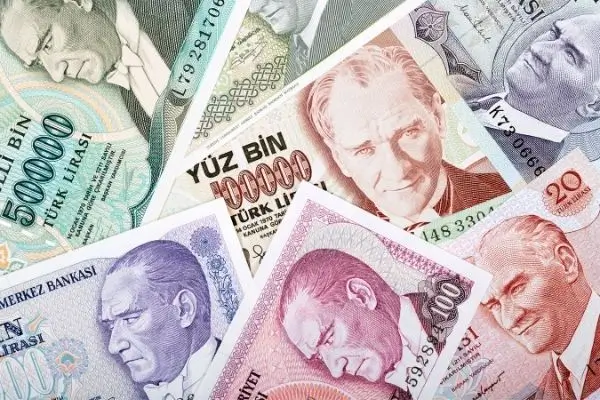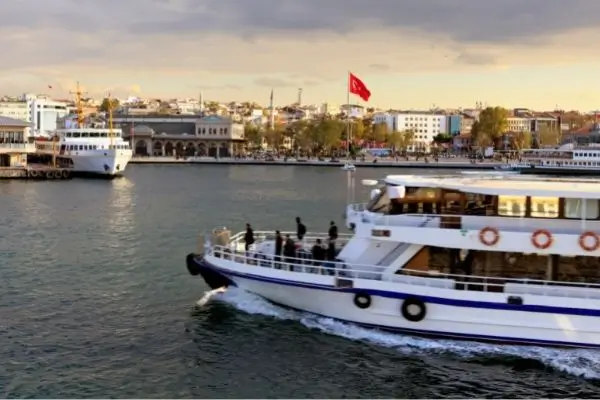Turkey is where Asia meets Europe, it’s a must-visit destination for all who love to travel. A burst of culture awaits from the melting pot of people who live in Turkey. Here is AFC’s Ultimate Turkey Travel Guide Before You Go. You can also check out AFC Holidays Turkey Tours.

Language
ENGLISH is barely spoken in Turkey, less than one-fifth of the total population have claimed to be fluent speakers. Most of which belong to younger generations.
Turks can speak basic English so keeping simple concise sentences would make communication easier. TURKISH is the main language along with a minority that speaks Kurdish.
What Weather to Expect in Turkey

Turkey enjoys FOUR SEASONS throughout the year as follows:
• spring (March to May): Ave. 4°C to 17°C (40°F to 62°F)
• summer (June to August): Ave. 14°C to 29°C (58°F to 84°F)
• autumn (September to November): Ave. 7°C to 20°C (45°F to 67°F)
• winter (December to February): Ave. -3°C to 5°C (27°F to 41°F)
What kind of clothes to pack in Turkey?
•May: Umbrella/Raincoat/Rain Bag(Waterproof). Rainfalls due to season change. *Rainiest Month
• March to May: Moderately cold temperatures, bring jackets
• June-August: Bring appropriate sun protection products + sunglasses if necessary, Light cotton clothing
• September-November: Moderately thick clothes/ jackets, jumpers/sweaters, and scarves
• December-February: Wooly Clothes + Boots + Scarves + Gloves
• All Seasons: Comfortable walking shoes.
Turkey Religion

PREDOMINANTLY MUSLIM; With that in mind, tourists have to be mindful and observe respectful behaviours when in mosques, or other places of worship.
Currency

TURKISH LIRA (TRY) - Best exchanged from USD and EUR. You will get better rates if you exchange money in Turkey itself.
The Turkish Lira is also virtually tough to convert back once outside the country, so make sure to use your money or be ready to regard them as souvenirs upon return.
USD and EUR are also readily accepted by major establishments, there are shops, hotels, restaurants, and taxi drivers who readily accept foreign denominations in tourist areas.
Should you bargain?
Haggling and bargaining are common in bazaars and long taxi journeys. It is less welcomed in food shops. Make sure you shop around to gauge the actual market price for an item that you want to purchase before haggling, it is considered rude to haggle too much only to not make a purchase in the end.
Should you leave a tip?
Tipping is customary in restaurants, hotels, and taxi rides. Around 10% at fancier restaurants and rounded up for taxi rides.
How much is a day in Turkey?
Minimum TRY 150 or USD 18 to TRY 350 or 42 USD per day or more depending on interest and choice of activity.
Power Plugs and Socket Travel Guide in Turkey

Turkey uses Type C and F power plugs at 230 Volts and 50 Frequency. Bringing power plug adapters is advisable.
Getting Around Turkey
Buses are widely used in Turkey. There are long-distance buses that travel overnight if you’re looking to get from one city to another. Rates may vary depending on the company, TRY 45 to TRY 60 for top-end companies.

The Railway System is also well-established and efficient, it would be more helpful to gather information on the operational routes before making plans.
Just like countries like Armenia, there are small vans that function as public transportation in major cities in Turkey. They are called Dolmuş which means “stuffed” as they are usually filled with passengers making use of every space possible.
*Disclaimer: As of May 31, 2021: In light of health safety, passengers aged 65 or over, or 18 and younger are advised not to use these forms of transportation, especially during busy hours of the day. These vehicles along with the metro, and buses are only able to operate at 50% capacity and will not allow standing passengers.
In addition to this, some of the more popular local ride-hailing apps include BiTaksi, Carmel, Taksim, Lyft, and Uber.
Turkey Travel Guide – The Checklist

Need Internet Everywhere in Turkey?
Firstly, Tourists will commonly find local sim cards with ready network access at the airport Istanbul Airport or Sabiha Gokcen International Airport. Although it is slightly more expensive than buying outside.
You will need your passport to purchase any SIM Card in Turkey.
Some of the more common options for example include Vodafone, Türk Telekom, Turkcell (Around 169-240 TRY or 20-28 USD).
Turkey Travel Guide to Bringing Medications
Firstly, prepare preferred over-the-counter medicines. Importantly, Keep them in original containers with labels for easy identification. Firstly, try to only bring in small quantities or as necessary. A simple first aid can include i.e. Diarrhea medicines, antacids, antihistamines, motion sickness, cough drops, decongestants, pain and fever relief, mild laxatives, bandages, and small antiseptic solutions accordingly. Lastly, don’t forget your masks and preferred sanitizer.
Moreover, Bring a doctor’s prescription for other prescriptions that you may have as needed. Similarly, check for the allowed amount of quantity depending on your stay.
Now that you’ve read this Turkey Travel Guide

Finally, you are officially ready to travel to Turkey. Don’t forget that you’re always free to contact your AFC Representative if you have any more concerns before your departure! Lastly, We wish you safe and happy travels!
You may also be interested in our recent post: Bosnia and Herzegovina Travel Guide Before You Go.
